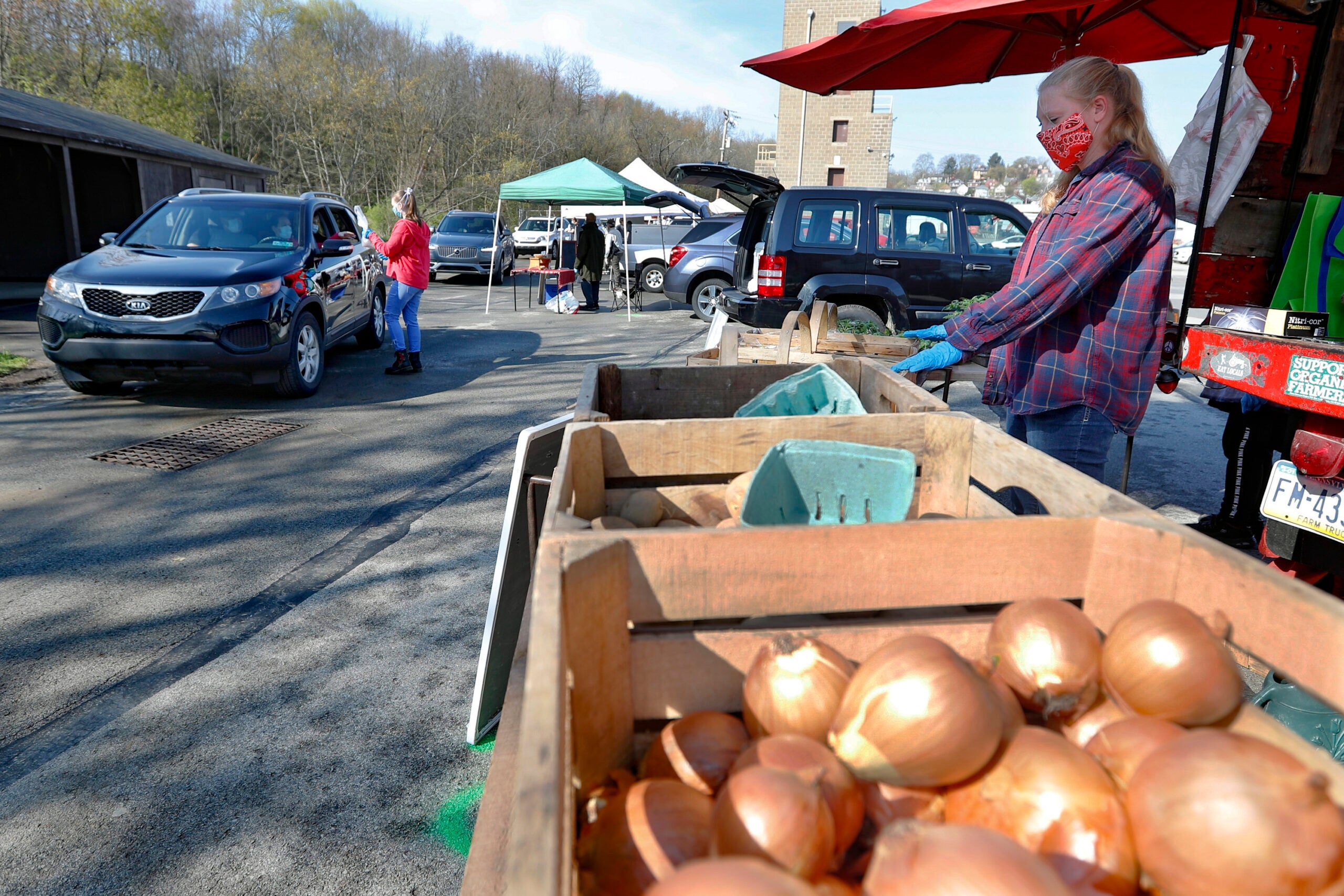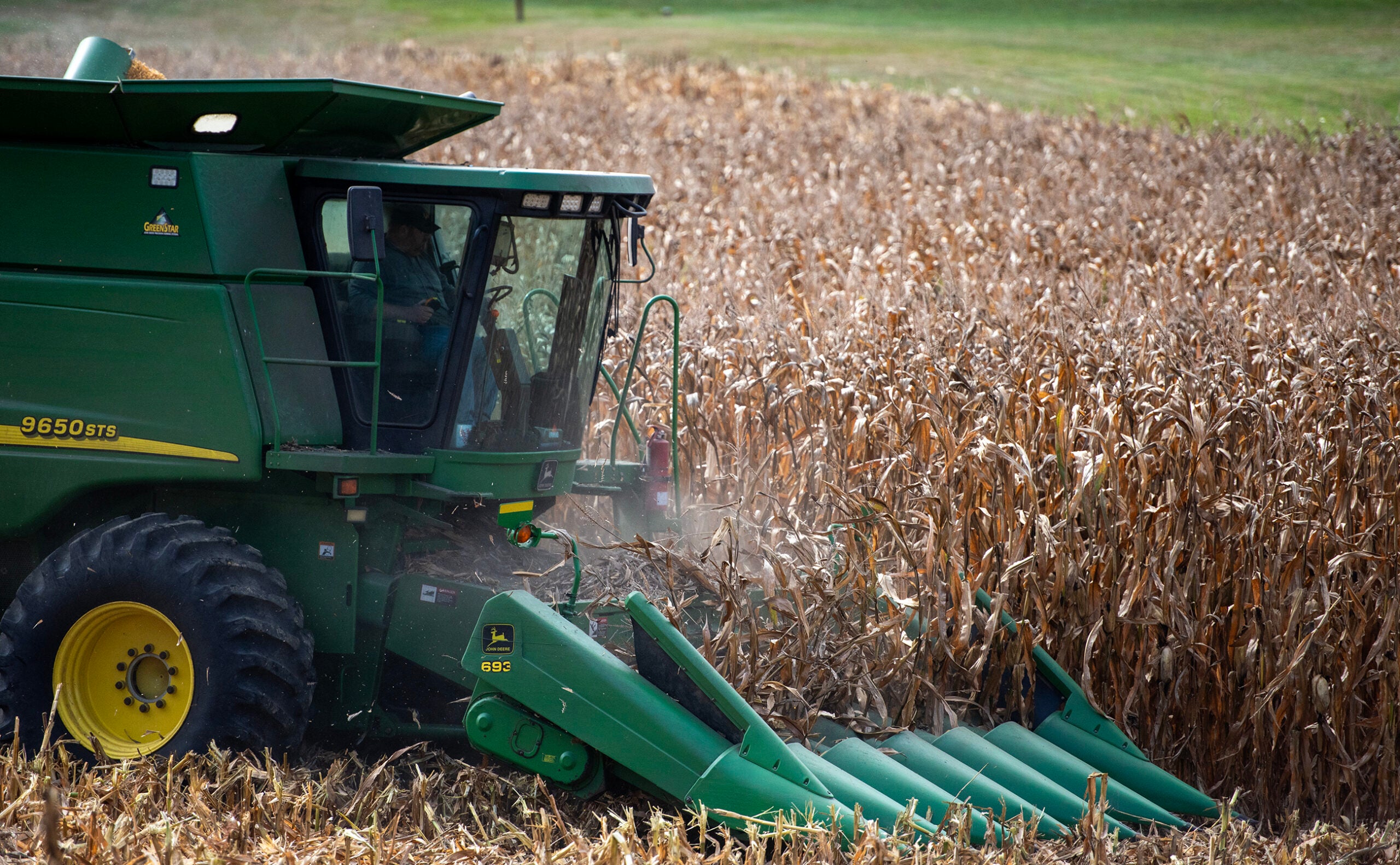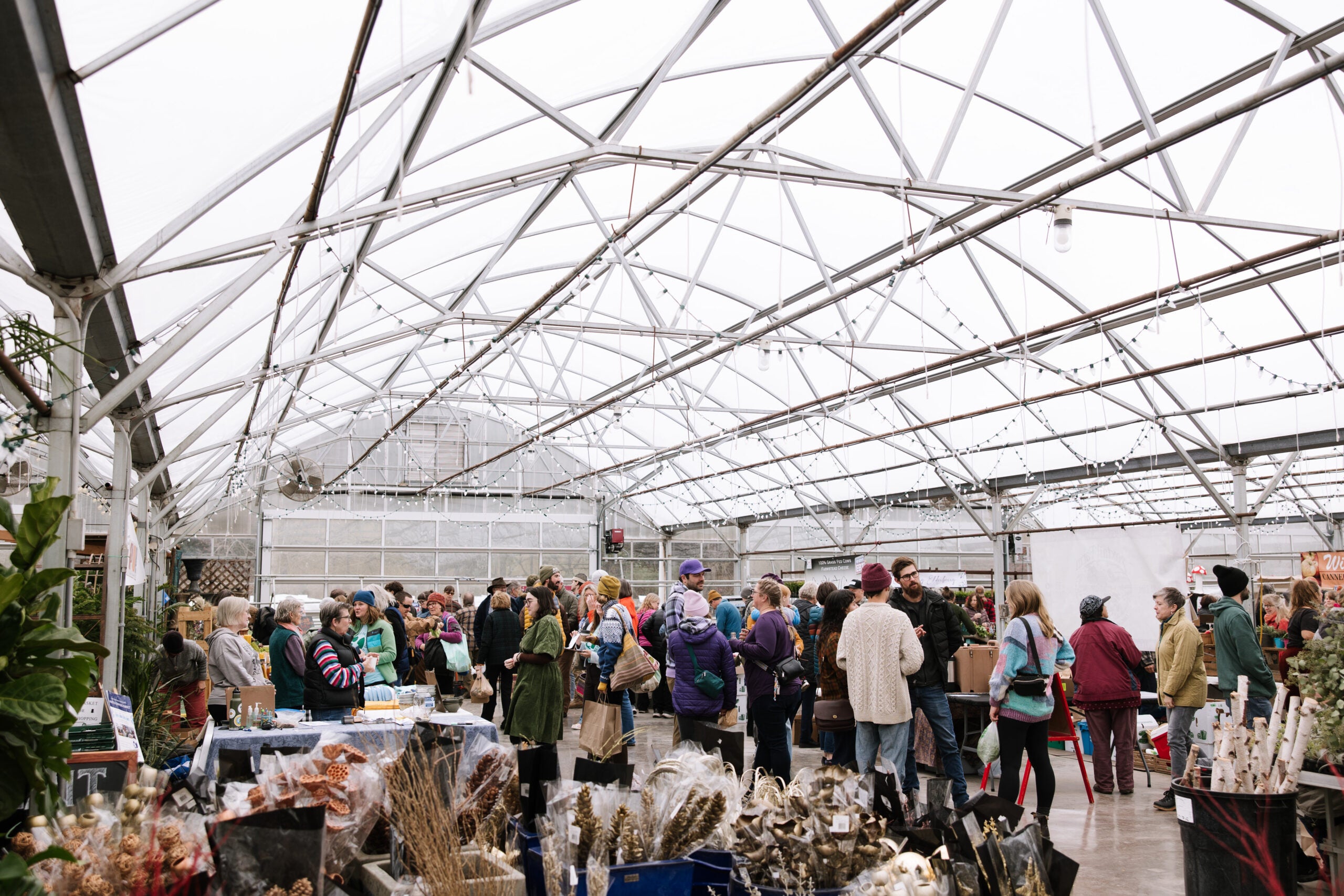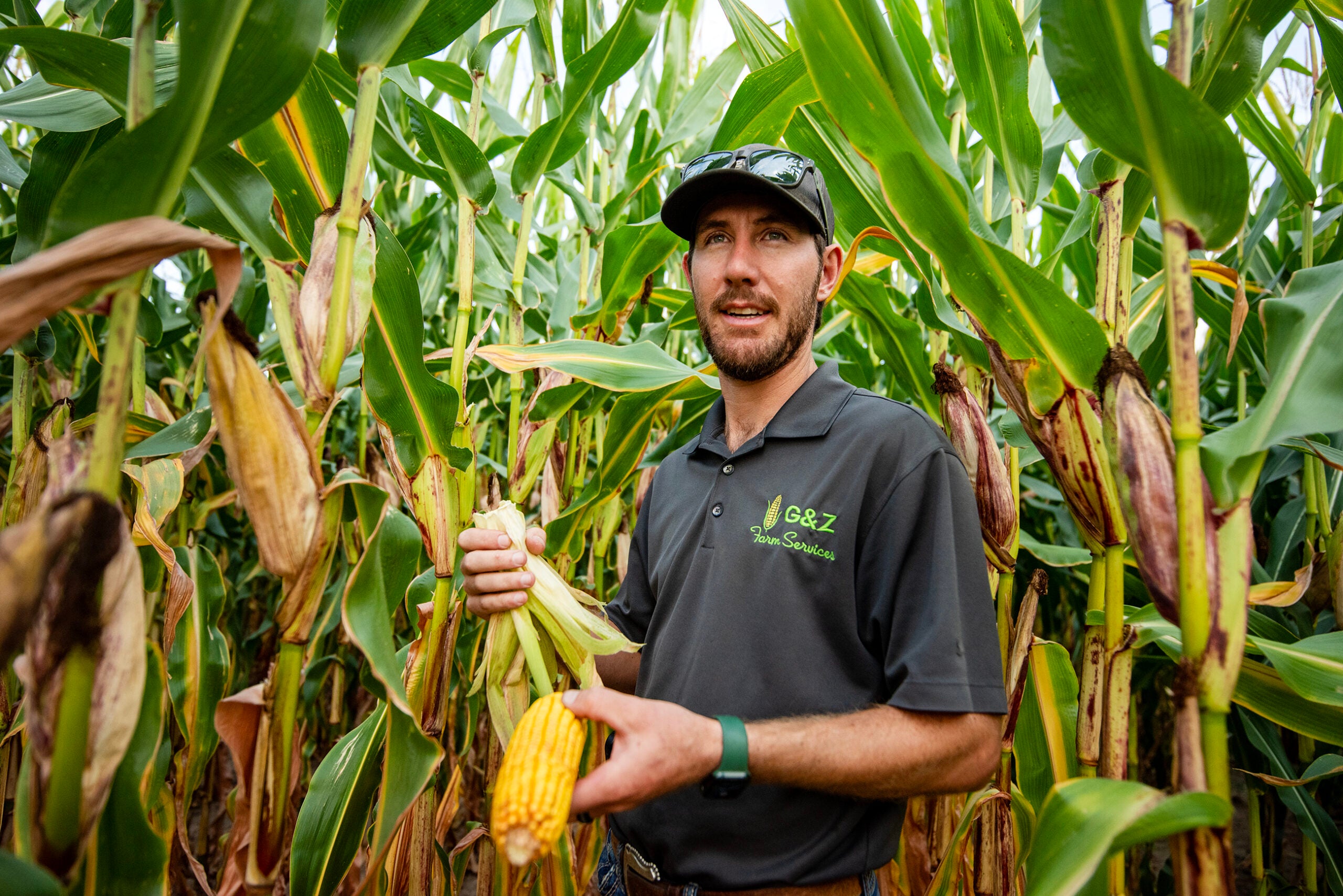Mary Uselman, an owner of Don’s Produce, already had her crops planted in her greenhouse in Arena when Gov. Tony Evers announced the state’s “Safer At Home” order to slow the spread of COVID-19 in late March.
“That’s when we realized that markets were going to be limited on where we could sell our product,” Uselman said.
Uselman and her husband sell produce at farmers markets in the Madison area and have a few wholesale buyers. And she said the new coronavirus pandemic has caused a lot of uncertainty for farms like hers.
News with a little more humanity
WPR’s “Wisconsin Today” newsletter keeps you connected to the state you love without feeling overwhelmed. No paywall. No agenda. No corporate filter.
“They’re uncertain how they’re going to move their product. They have to look for ways to move it,” Uselman said. “I just keep taking in orders and doing the best I can.”
Uselman is one of the vendors participating in Dane County Farmers’ Market’s new Local Food Pick Up, where customers place an order online for drive-thru pickup at the Alliant Energy Center.
Sarah Elliott, market manager, said farmers markets are considered essential under the state’s stay-at-home order. But markets are having to make changes to adhere to current social distancing requirements.
“We can’t have music or have kids activities or things that are often staples of a lot of farmers markets because they are not allowed to be open as a social gathering place, they’re allowed to be open as a critical food access point,” Elliott said.
She said some communities are planning to operate their normal markets with new precautions to promote hygiene and social distancing.
Elliott said the Dane County market has seen a lot of interest from customers at their first pickup events. While the organization is still working out the best ways to keep traffic moving on market day, she said they’re already planning to add more vendors as the season continues.
But Elliott said some farmers who typically sell at the market are also finding their own ways to connect to customers during the pandemic.
“A lot of our members are choosing to connect directly with customers either through on-farm pickup or through home delivery models. Some of them are banding together to kind of do like a little, tiny, mini aggregation of delivery, where you can get like a couple different products or you can do pickup,” Elliott said. “The basic reality is that on a typical Saturday, we have between 12,000 and 20,000 customers come to the Dane County Farmers’ Market and clearly we’re never going to be able to process that magnitude of people through a drive-thru model.”
Some farms that are already offering home delivery or pickup of pre-paid foods are benefiting from the increased interest.
Chuck Anderas, an organic specialist for the Midwest Organic and Sustainable Education Service, said sales of community-supported agriculture, or CSA, shares have “gone through the roof” for many producers.
“I talked to a farmer just yesterday who they just made double the amount of shares they had the previous year, and they’re kind of figuring out on the fly how to make that work,” Anderas said.
But Anderas said the spike in CSA shares doesn’t mean farms will be selling more produce than during a typical growing season. He said most producers that offer CSAs also rely on sales at farmers markets or even local restaurants, which have been largely shut down under the current stay-at-home order.
As the growing season gets under way, Anderas said many farms are also making plans about how to best protect employees from the virus.
“Farm work is difficult and it takes a lot of training to do well. So if someone becomes symptomatic or if someone in their family does, and they can’t work for quite some time, it can really put a dent in people’s plans a lot for how they’re going to get their work done in a timely manner,” Anderas said.
And not all farms even have the workforce to take on deliveries or on-farm pick up.
Uselman said adding new ways to sell her produce isn’t an option for her farm.
“For me, to wait around for someone to show up, it takes too much of my time. I can’t get anything picked, I can’t get anything planted,” Uselman said. “I don’t have time to go around delivering from house to house. I just don’t have enough hours in the day.”
Uselman said she hopes more communities will open up market opportunities like Dane County’s drive-thru during what she said is “a critical time for the farmers.”
Wisconsin Public Radio, © Copyright 2025, Board of Regents of the University of Wisconsin System and Wisconsin Educational Communications Board.







